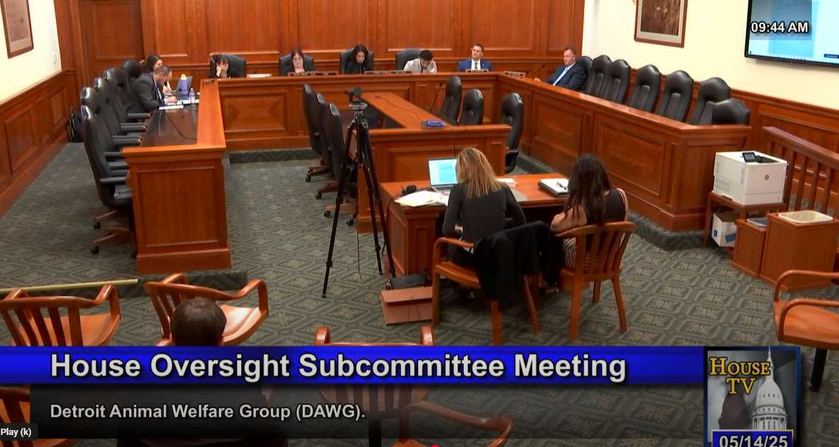LANSING, Mich. — A Michigan House of Representatives committee heard testimony this week from Dr. Kelley Labonte, director of the Detroit Animal Welfare Group (DAWG), who claims she has been the target of harassment and retaliation by the Michigan Department of Natural Resources (DNR) and the Macomb County Prosecutor’s Office after criticizing the state's handling of a deer starvation incident.
Lawmakers opened the hearing by stressing that the inquiry was not to determine guilt or innocence, but to investigate whether state agencies weaponized their authority against a private citizen exercising free speech rights.
"One concern serious concerns about the power of the state that may be misused against private citizens who dare to challenge it," a committee member said in opening remarks. "This is not a Partisan issue. It’s a constitutional issue."
Support my independent journalism by becoming a paid supporter. I can't do this work without you.
Dr. Labonte, whose rescue organization has operated for more than 15 years and rehabilitated thousands of animals, detailed a years-long series of legal challenges, inspections, and criminal charges she contends were retaliation for her public criticism of the DNR's handling of a 2018 situation involving emaciated deer in Clarkston, Michigan.
Labonte testified that she worked with the late Oakland County Executive Brooks Patterson to develop a plan to save the deer, but the DNR rejected the plan and shortly afterward, DAWG faced increased scrutiny. Labonte and her attorney, Celeste Dunn, presented internal DNR emails suggesting officials discussed revoking DAWG’s permits after Labonte criticized them publicly. One 2019 email from a DNR official reportedly asked, “Can we not pull their rehab license?” following online criticism of the department’s coyote policies.
Throughout the hearing, Labonte and Dunn argued that DAWG faced inspections unlike any other wildlife rehabilitation facility in Michigan, often involving armed DNR officers. Labonte described four instances of officers parking outside her property and repeated investigations based on what she called “frivolous” complaints, including accusations of possessing an eagle based on a Facebook post made by a volunteer.
Her attorney also cited a judge's ruling in favor of DAWG after a permit revocation trial, which found no documented basis for some DNR inspections and described some enforcement actions as potentially retaliatory.
The Other Side: DNR and Prosecutor's Response
While DNR officials were not present at the hearing, the department has previously defended its actions against DAWG in court filings and public statements. According to state records, DNR officials argued that enforcement actions were based on legitimate concerns regarding wildlife rehabilitation standards, including alleged failures to comply with cage size regulations and recordkeeping requirements.
Court documents reviewed during prior proceedings noted that the DNR was concerned about unpermitted handling of certain species and alleged noncompliance with Michigan’s Wildlife Conservation Order, though the Administrative Law Judge ultimately ruled in DAWG’s favor on permit revocation.
In response to broader criticisms of regulatory practices, the DNR has stated that it conducts inspections and investigations “to ensure the health and welfare of Michigan’s wildlife and to protect public safety.” The agency has maintained that its oversight is consistent with the law and that revoking a wildlife rehabilitation permit is a rare, serious step requiring substantial documentation.
As for the Macomb County Prosecutor’s Office, public records show the office pursued misdemeanor charges related to alleged violations of wildlife care regulations, but a number of those charges were dismissed or reduced after court review. A spokesperson for the prosecutor’s office previously stated that their role is to enforce existing laws and that any charges brought were based on investigative reports submitted by the DNR, not political motivations.




















